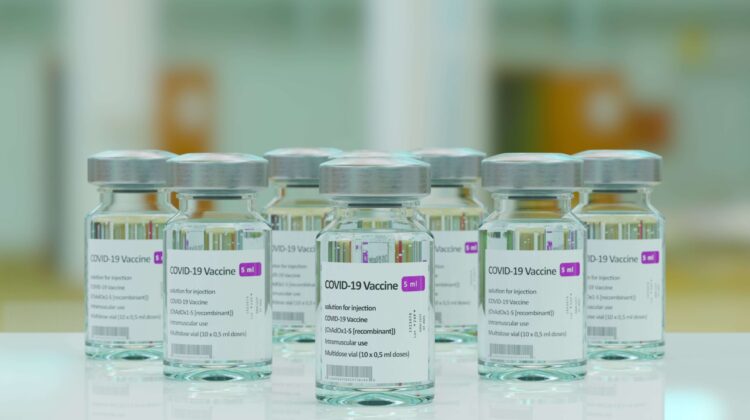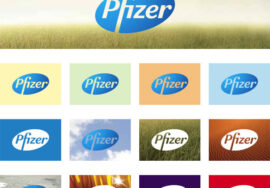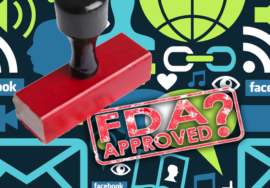
Big Pharma Needs to Start Thinking Like a Tech Start-Up……
There is a growing agreement that the key issue facing the global drug industry over the coming years will be how to adapt to a digital landscape that is changing at an astonishing pace. Apple’s App store was launched a mere 10 years ago. By 2013 there were around 66,000 digital health Apps available in the Apple and Google Play stores. By end-2017, this had risen to an astonishing 319,000 (IQVIA Institute 2017). During this time, many industries have been dramatically disrupted as consumers became used to buying goods and services from (as well as managing their lives through) digital “platforms”. Examples of digital platforms in this sense include:
Amazon for retail
AirBnB for real estate/ rentals
TripAdvisor and Booking.com for travel
Google for information/research
Uber for taxis
Facebook & Instagram for social networking
Most of these runaway success stories of the modern digital age have benefited from the so-called “network effect”: a positive feedback loop meaning that usage of the platform by any one user increases its value for other users. “A user’s decision is based on the number of other users already using the product” (Ready 2018). The implications of this for a particular industry sector are that, in the long run, there will tend to be fewer players, and they will continue to grow larger. [Around 60% of health Apps fall into the general wellness category and here Fitbit and Myfitnesspal (which can integrate with each other) do have some level of dominance. However, amongst the remaining 40% of Apps (those focused on the management of health conditions) the field is wide open for a digital platform to take ownership. A plethora of disease management Apps exist although 69% (IQVIA Institute 2017) of these are for the management of chronic conditions (Mental Health & Behavioural Disorders; diabetes; Heart/Circulatory System disorders; Nervous and musculoskeletal system disorders) which collectively account for a large percentage of global pharmaceutical product revenue.]
Data-driven platforms are likely to be the next big development in the pharma and healthcare industry, offering value for patients, payers, healthcare professionals and policymakers alike. After the era of blockbusters ended and many billion dollar drugs started to lose their patent, companies started to diversify their portfolios. Following this, with increasing pressures on reimbursement and more internet-savvy, newly empowered patients, firms focused their efforts on health outcomes. Now, with ever more connected patients and a aging population suffering from chronic conditions, connected disease platforms are set to take over. If one such platform benefits from a network effect and starts to dominate a particular disease space, it will provide its owner with an unprecedented amount of power to understand the patient and shape the future of disease management, including product development.
If the Pharma industry doesn’t take the initiative in creating disease platforms then it is likely that one of the technology giants (Microsoft, Apple, Alphabet/Google, Amazon, Facebook) or a digital health start-up will: Alphabet, Microsoft and Apple alone have filed over 300 healthcare patents over the past 5 years (Spence 2018) and most of the big players have numerous health-related initiatives and joint-ventures in the pipeline. The disruptive threat posed to the industry by technology companies is being taken increasingly seriously. Ernst and Young’s Life Science Global Capital Confidence Barometer 2018 (EY 2018) contains numerous references to the issue and the number one cited reason for portfolio review is “the threat to our business from digitally enabled competitors and start-ups”.
Industry needs to start placing digital at the heart of their strategy rather than thinking in terms of a patient App being simply an add-on support service for a particular product. There is certainly a lot of deal activity in this area with “more than 150 digitally-focused partnerships announced between life science companies and other stakeholders since 2014” (Spence 2018). However, there is a danger of companies adopting a a scattergun approach without a joined-up, digitally-focused vision for the business at the core.
As an example, it is worth looking at what is happening in the world of Apps and digital platforms in the diabetes space:
A quick search reveals that there are currently over 100 diabetes disease management Apps available in the Apple Play App stores, and no one player dominates. Diabetes is a chronic condition in which it is easy to see the benefits of m-health to patients, payers and providers/HCPs alike:
• Close monitoring of blood glucose is essential for good disease management and bluetooth connected devices that relay results to a smartphone are becoming the norm
• Adherence to drug regimens can be recorded by mobile device (sometimes directly through bluetooth smart insulin pen)
• Food labels can be scanned to check suitability for diabetic patient
• Exercise can be tracked, recorded and monitored
If one particular diabetes platform starts to dominate, recording data from a high proportion of the patient population, the benefits to all stakeholders will be huge:
Patients- will be able to track their condition and connect and share with other similar patients
Payers- will be able to monitor the efficacy and health outcome of the drug they are reimbursing. Drug adherence can be monitored (patients who are non-adherent to their diabetes medicine are very costly to health systems)
Providers/HCPs- will be able to monitor outcomes in real-time, providing instant feedback
Companies- companies will be able to tap into a rich seam of (anonymised) patient data to support generation of outcomes and health economic data as well as helping inform new product development
Three major pharmaceutical companies dominate in the diabetes sector: Nova Nordisk; Sanofi and Elli Lilly. Collectively the firms’ insulin brands (Lantus, Levemir, Humalog, NovoLog and Humulin) bring in nearly $10billion of sales in the US alone (Helfand C & Station, T. 2017). As we have already discussed, there is a huge focus on value in the US pharmaceutical market at present, and this has been particularly felt in the diabetes field. Cheaper biosimilars are eating away at sales of brand like Lantus, there have been controversies over insulin drug prices increases (Prices for Humalog and many insulin brands have increased from about $300 to $500 between January 2013 to October 2016) and there are changes to the insurance coverage of insulin drugs in the US constantly at present. It’s easy to see the potential benefits of controlling the go-to diabetes management digital platform in this environment and all three companies have started looking at this:
Novo Nordisk have partnered with niche technology company Glooko (Bulik, BS. 2017), who have been developing patient monitoring Apps for diabetic patients for a number of years. Nova have launched an App, powered by Glooko’s existing platform, under their patient brand “Cornerstones4Care”. Crucially the App and platform is completely brand agnostic, that is it will sync data from most currently available glucose monitors and users can enter whichever diabetes medications that they are on. By not tying the platform to Nova Nordisc’s own products there is a far greater chance that it will gain the traction required to benefit from a network effect and become the dominant player.
Sanofi have partnered with Verily, Alphabet/Google’s research organization devoted to the study of life sciences, to launch their dedicated diabetes platform, Onduo (Taylor 2016). Their approach is slightly different: if a patient’s health insurance plan is signed up, they can register on the platform for free, at which time they receive a welcome pack including a proprietary connected blood glucose meter, an A1c test kit, lancets and glucose test strips. Supply refills are then available at no additional cost. Once signed up, participants also receive remote support and care in addition to their regular doctor visits. It is not yet clear how device / brand agnostic the Onduo platform will be.
Eli Lilly meanwhile have a non-exclusive deal with Rimidi, a digital health company that provides software and clinical analytics for chronic disease management. The press release at the end of last year stated that “Rimidi will integrate its diabetes management software platform with Lilly’s integrated insulin management system in development”, although further details have yet to be made available.
In an increasingly connected and digitised world, global healthcare companies will need to think more broadly than top-down, R&D led product development. They need to take steps to own disease areas through connected platforms that will add value to their offering by saving clinician/HCP time, allowing payers to assess costs and offer patients with affordable and improved health outcome whilst, at the same time, returning real-world outcomes data on launched products and valuable insight to help drive the personalised product portfolios of the future. In many cases, companies should think about the digital platform first and the products second, as opposed to the other way around.
References
IQVIA. (2017). The Growing Value of Digital Health in the United Kingdom. Available: https://www.iqvia.com/institute/reports/the-growing-value-of-digital-health-in-the-united-kingdom. Last accessed May 2018.
Ready, M (2018). How to Harness the Power of Network Effects.Available: https://www.forbes.com/sites/forbescoachescouncil/2018/01/02/how-to-harness-the-power-of-network-effects/#5cbcd2e962e8. Last accessed May 2018.
EY. (2018). Is your portfolio fit for the future or fashioned on the past?.Available: https://cdn.ey.com/echannel/gl/en/services/transactions/ccb18/pdf/Global-Capital-Confidence-Barometer-Edition-18.pdf. Last accessed May 2018.
Helfand C & Station, T. (2017). Top 10 diabetes drugs by 2016 sales.Available: https://www.fiercepharma.com/special-report/top-10-diabetes-drugs-by-2016-sales. Last accessed May 2018.
Bulik, BS. (2017). Novo Nordisk and Glooko unveil first comarketed app for diabetes solutions. Available: https://www.fiercepharma.com/marketing/novo-nordisk-and-glooko-partnership-unveils-first-co-marketed-app-for-diabetes-solutions. Last accessed May 2018.
Taylor, P. (2016). Sanofi sets up diabetes joint venture with Google’s Verily. Available: http://www.pmlive.com/pharma_news/sanofi_sets_up_diabetes_joint_venture_with_googles_verily_1128741. Last accessed May 2018.








